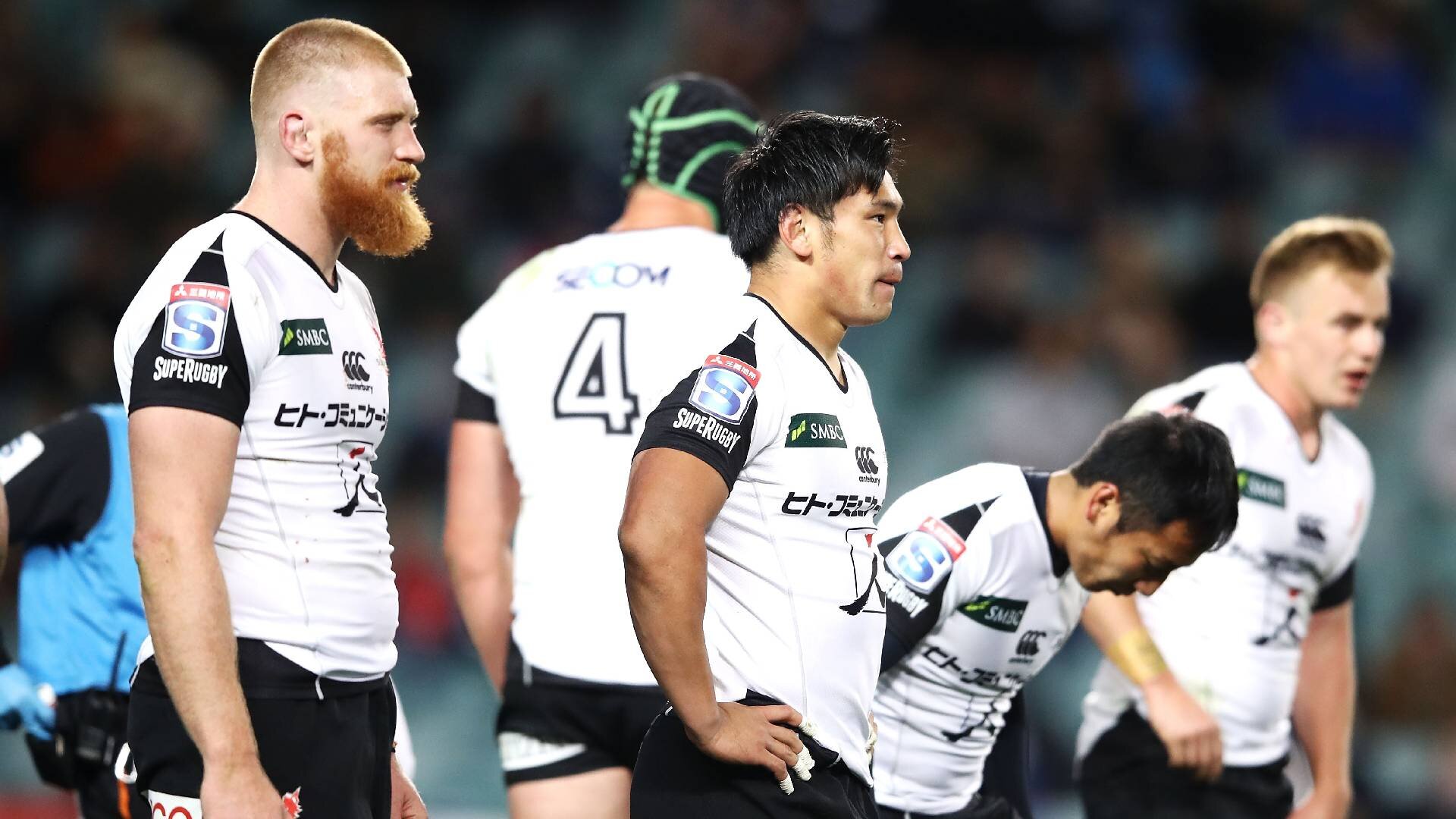Confirmed: Sunwolves cut from Super Rugby from 2021

It’s confirmed: the Sunwolves will be axed from Super Rugby in 2021.
SANZAAR confirmed reports of its culling of the Japanese franchise in an announcement made on Friday, although the competition’s only Asian-based side will be made to play the 2020 season.
The Sunwolves’ expulsion from Super Rugby comes after a tumultuous opening three seasons, which saw them win just six times from 46 outings.
However, a noticeable improvement in the opening five rounds of the 2019 campaign has seen them secure their first-ever victory outside of Tokyo in the form of a shock 30-15 win over the Chiefs in Hamilton, while pushing the Waratahs, Blues and Reds close in other encounters.
Those results were not enough to ensure their survival in the competition, though.
https://www.instagram.com/p/Buf9r2WAU5Q/?utm_source=ig_web_copy_link
“The decision to further consolidate the competition format to a 14-team round robin was not taken lightly,” said SANZAAR chief executive Andy Marinos.
“It has involved some detailed analysis and a thorough review of the current and future rugby landscape, tournament costs, commercial and broadcast considerations and player welfare in line with our Strategic Plan.”
“Competition integrity, affordability and a competitive playing environment were further key drivers to ensure that an optimal player development pathway remains in place to feed into international rugby.
“Factoring in the above analysis and review a 14 or 15-team round robin format were considered, as these models delivered best against the criteria we were seeking, including a format that would see each team playing every other team leading into a finals series.”
The result of the Sunwolves’ exclusion from Super Rugby means that the new 14-team competition will compose of the five New Zealand franchises, four Australian and South African sides, and the Jaguares from Argentina.
Marinos said the Japanese Rugby Football Union had advised SANZAAR in March that the Sunwolves competing in Super Rugby had become a financially unsustainable, and while still under the ownership of the JRFU post-2020, it was up to the Japanese governing body to decide what the future of the franchise holds.
The Daily Telegraph has reported that with the World Cup to be hosted in Japan later this year, a back-to-back condensed versions of the Top League in Japan were to be held in 2020, restricting the participation of domestically-based Sunwolves players who played Japanese club rugby in the Super Rugby off-season.
That would mean that the Sunwolves are expected to be primarily made up of New Zealanders and Australians in their final season of Super Rugby next year.
https://www.instagram.com/p/BvOP1vygO-K/?utm_source=ig_web_copy_link
“However, Japan and the Asia Pacific region remain strategically important to SANZAAR,” Marinos said.
“We will continue to work with the JRFU, Japan Super Rugby Association and other stakeholders, as we have done throughout this review process, to establish a truly professional league structure in Japan in which current and potentially new teams could participate.”
Marinos suggested that there is a possibility for the Sunwolves to still exist with ties to SANZAAR under a potential second-tier competition that could feature teams from across Asia, the Pacific and the Americas.
“We have presented options to them around the establishment of a Super Rugby Asia-Pacific competition structure including Japan, the Pacific Islands, North and South America and Hong Kong. The concept includes linking high performance programmes of such nations into the potential competition structure. The aim is to deliver a competitive and sustainable international pathway that can align to both current and future considerations around the international calendar.
“We would like to thank the JRFU for their continued support and look forward to working with them going forward and we will continue to be supportive of the Sunwolves through the 2019 and 2020 super rugby seasons.”
The removal of the Sunwolves means that the competition will revert back to the structure it held between 2006 and 2010 in a 14-team round-robin format which will see the removal of the current three conference system and will allow each team play every other team home or away each season.
This means 13 matches for each team, with two byes, in the regular season with the number of home and away matches varying from six to seven based on a two-year alternate match schedule.
This will then lead into a new three-week, top six finals series, where the top two ranked teams on the competition ladder will receive a bye in week one before hosting semi-final matches against the winners from a knockout round between teams ranked three to six.
Watch – NRL chasing SBW again:

























